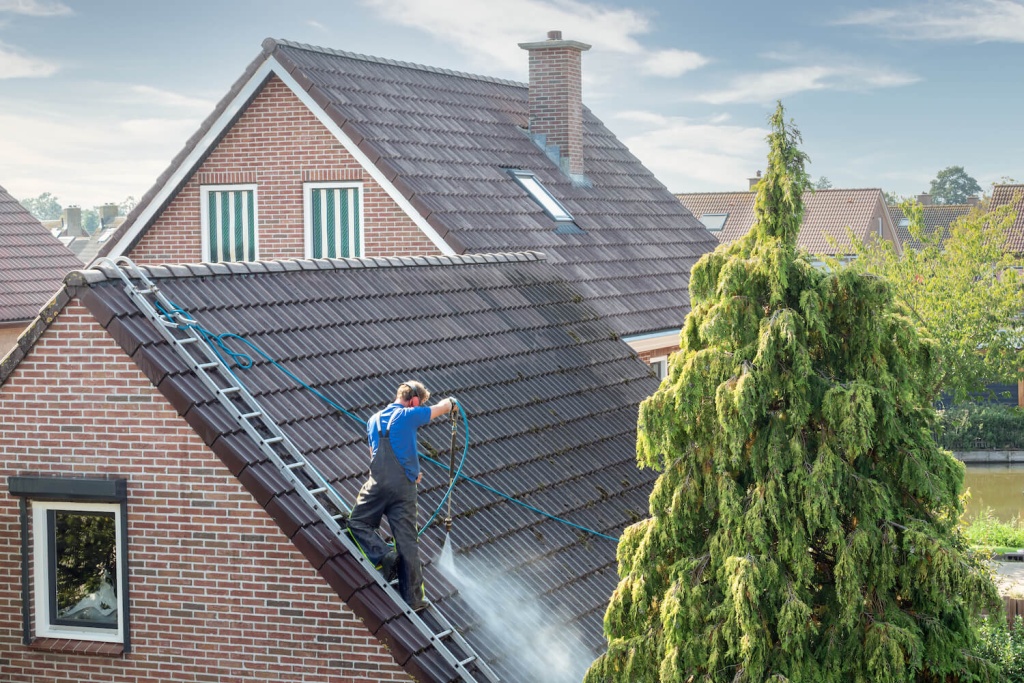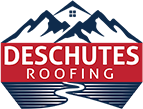Your roof is one of the most important components of your home, providing protection from the elements and ensuring the safety and comfort of your family. However, without proper maintenance, your roof can deteriorate over time, leading to costly repairs or even premature replacement. By implementing a proactive approach to roof maintenance, you can extend the lifespan of your roof, prevent potential issues, and avoid expensive repairs down the line.
In this article, we will explore essential roof maintenance steps that will help you keep your roof in optimal condition and save you money in the long run.

Regular Roof Inspections
Regular roof inspections are crucial for identifying early signs of damage or deterioration. Schedule professional inspections at least once a year, ideally in the spring or fall, and after severe weather events. A trained roofer will thoroughly assess your roof, checking for loose or damaged shingles, cracked flashing, leaks, and other potential issues. Early detection of problems allows for timely repairs, preventing them from escalating into more significant and costly repairs.
Clear Debris and Maintain Clean Gutters
Debris, such as leaves, branches, and dirt, can accumulate on your roof over time, leading to clogged gutters and water backup. Regularly remove debris from your roof and clean out your gutters to ensure proper water drainage. Clogged gutters can cause water to overflow and seep into the roof’s structure, leading to leaks and water damage. By keeping your roof and gutters clean, you minimize the risk of water-related issues and prolong the life of your roof.
Trim Overhanging Branches
Overhanging tree branches pose a risk to your roof, especially during storms or high winds. Trim any branches that are in close proximity to your roof, as they can scrape against the shingles, cause abrasion, and even result in significant damage. Falling branches can also puncture or dislodge shingles, leading to water penetration and roof leaks. Regular tree maintenance helps protect your roof from potential hazards and extends its lifespan.
Address Moss and Algae Growth
Moss and algae can take root on your roof, particularly in damp and shaded areas. These growths not only mar the appearance of your roof but can also compromise its integrity over time. Moss holds moisture against the shingles, promoting decay, while algae can eat away at the protective granules on the surface. If you notice moss or algae growth on your roof, take steps to remove them promptly. Consider using a moss and algae treatment solution or consult a professional roofer for guidance on safe and effective removal methods.
Maintain Proper Ventilation
Proper roof ventilation is crucial for regulating temperature and moisture levels in your attic. Inadequate ventilation can result in trapped heat and excessive moisture buildup, leading to a range of problems, including roof deterioration, mold growth, and increased energy costs. Ensure that your roof has sufficient ventilation, such as ridge vents, soffit vents, or exhaust fans, to promote air circulation and prevent moisture-related issues. Regularly check the vents to ensure they are clear of obstructions and functioning properly.
Inspect and Maintain Flashing
Flashing is the material used to seal and protect vulnerable areas of the roof, such as chimneys, skylights, vents, and valleys. Over time, flashing can become loose, damaged, or deteriorated, compromising its effectiveness. Regularly inspect the flashing for signs of wear and tear, such as rust, cracks, or gaps. Replace any damaged flashing promptly to prevent water infiltration and subsequent leaks.
Address Roof Leaks Immediately
If you notice any signs of a roof leak, such as water stains on the ceiling or walls, damp spots, or mold growth, address the issue immediately. Roof leaks can cause extensive damage to your home’s interior, including structural issues, mold growth, and compromised insulation. Contact a professional roofer to assess the source of the leak and perform the necessary repairs. Timely intervention can prevent further damage and save you from expensive repairs in the future.
Maintain Roof Coatings
Roof coatings, such as sealants or reflective coatings, can provide an additional layer of protection to your roof. These coatings help to seal cracks, protect against UV damage, and improve energy efficiency by reflecting sunlight. If your roof has a coating, inspect it regularly and reapply as recommended by the manufacturer. Proper maintenance of roof coatings can extend the life of your roof and enhance its performance.
Maintain Insulation
Proper insulation is not only crucial for energy efficiency but also for the overall health of your roof. Insulation helps regulate temperature and prevent heat transfer between your home and the attic. Inadequate insulation can lead to excessive heat buildup in the summer, causing your roof to deteriorate more quickly. Ensure that your attic is adequately insulated and that insulation is not compressed or damaged. Regularly inspect the insulation and replace or add more as needed to maintain its effectiveness.
Watch for Signs of Roof Aging
As your roof ages, it becomes more susceptible to damage and deterioration. Keep an eye out for signs of aging, such as cracked or curling shingles, loss of granules, or visible wear and tear. These signs indicate that your roof may require attention or even replacement. Addressing age-related issues promptly can help prevent further damage and extend the life of your roof.
Professional Roof Maintenance
While some preventive maintenance tasks can be handled by homeowners, it’s beneficial to consider professional roof maintenance on a regular basis. Professional roofers have the expertise, experience, and specialized equipment to perform comprehensive inspections and identify potential problems that may go unnoticed by the untrained eye. They can also provide professional cleaning, treatments, and repairs to ensure the optimal condition of your roof. Hiring a professional for periodic maintenance can give you peace of mind and help you stay proactive in caring for your roof.
Stay Proactive with Seasonal Maintenance
Different seasons can bring unique challenges to your roof. During fall, for example, falling leaves and debris can accumulate and clog gutters, leading to water backup and potential damage. In winter, snow and ice can place additional stress on the roof structure. Stay proactive by conducting seasonal maintenance tasks such as cleaning gutters, removing leaves and debris, and inspecting for ice dams. By addressing these seasonal issues promptly, you can prevent potential damage and ensure your roof’s longevity.
Roofing Maintenance Services Conclusion
Implementing a preventive roof maintenance plan is essential for avoiding costly repairs and ensuring the longevity of your roof. Regular inspections, debris removal, gutter maintenance, tree trimming, addressing moss and algae growth, maintaining proper ventilation, inspecting and maintaining flashing, addressing roof leaks promptly, and maintaining roof coatings are all crucial steps in preserving the integrity of your roof. By investing time and effort in preventive maintenance, you can save money in the long run and enjoy a durable and reliable roof for years to come.










